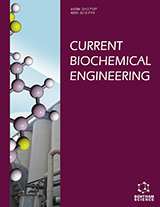Abstract
Background: Wheat plant (WP) residues could be efficiently used as substrate for biogas production via anaerobic digestion (AD). It is a mixture of starchy and lignocellulosic materials. The hydrolysis of wheat plant is the ratelimiting step of its AD. An efficient pretreatment can facilitate the wheat plant hydrolysis and accordingly enhance the AD’s efficiency. The aim of this study was to investigate the effects of thermo-alkaline pretreatment on the WP structure as well as the yield of thermophilic anaerobic digestion of WP.
Methods: Anaerobic sludge was used as inoculum. Wheat plant (WP) including its straw and grains was used as substrate. The impact of sodium hydroxide pretreatment (8% w/w) on the thermophilic anaerobic digestion (55 °C) of wheat plant using anaerobic sludge in batch reactors was investigated. Pretreatments were performed at different temperatures of 0, 25, 50, 75, and 100 °C for 60 min.
Results: The methane and biogas yields of the untreated WP were 182.1 and 287.3 mL/g VS, respectively. The pretreatments at 50 °C and 75 °C led to the highest methane yields of 232.9 and 358.6 mL/g VS, respectively, while the other pretreatments had no positive effects on the methane yield. The results of scanning electron microscopy showed that the surface of the WP was effectively destructed after pretreatment at 75 °C when compared with the untreated WP.
Conclusion: Thermo-alkaline pretreatment (specially at 75 °C for 60 min) could efficiently enhance the yield of anaerobic digestion of wheat plant.
Keywords: Anaerobic digestion, biomethane, NaOH, thermo-alkaline pretreatment, wheat plant.
 17
17 1
1
















